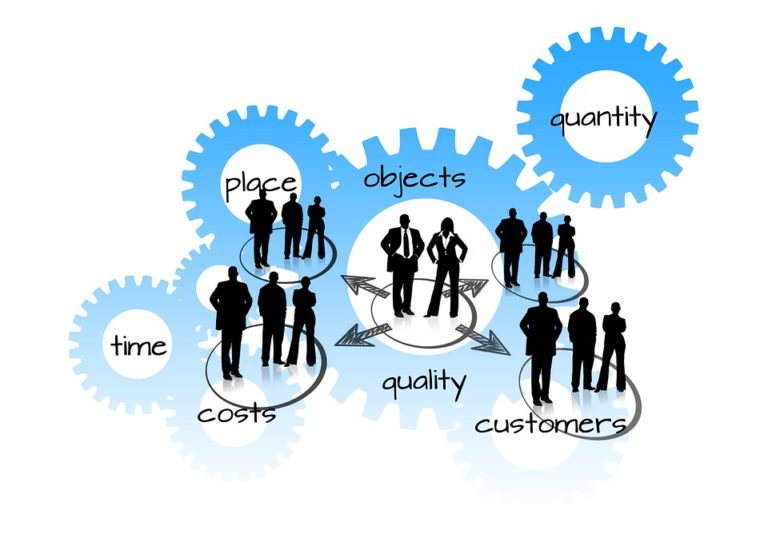Failure Is the Highway to Success: Getting It Right
Many times, regardless of how well we plan, some things just fail. Maybe it’s a webinar or a meeting presentation that was well prepared for, but suffered technical difficulty; maybe a savings plan losing nearly half of its value in today’s recession. These challenging situations define our days, but our responses to them determine our future success.
While some curse and yell, others see failures as opportunities. Poet Maya Angelou writes, “I’ve learned that you can tell a lot about a person by the way he or she handles these three things: a rainy day, lost luggage, and tangled Christmas tree lights.” Failures can either destroy or advance our goals, but it’s our response to them that truly determines the outcome.
Thomas Edison experienced repeated failures. His true success was not his invention of the light bulb, but rather his tenacity to use failures as a means to gain new information and new perspective. The most successful employees are the ones who have the persistence and optimism to learn from difficulty and to use what they learn to re-imagine, re-create, and re-experiment. They are the ones who have learned to be positive and who consistently hunt for opportunities. As the economy struggles to recover, successful organizations will reinvent their futures by focusing on these opportunities.
Ways to Fail Forward
Regardless of your brain chemistry or genetic makeup, you can begin learning from your mistakes today rather than continuing to slip up or fall behind. As some of you may know, I refer to this as an “After Action Review”. To get started, follow these tips:
- Accepting responsibility makes learning possible.
- Don’t equate making mistakes with being a mistake.
- You can’t change mistakes, but you can choose how to respond to them.
- Growth starts when you can see room for improvement.
- Work to understand why it happened and what the factors were.
- What information could have avoided the mistake?
- What small mistakes, in sequence, contributed to the bigger mistake?
- Are there alternatives you should have considered, but did not?
- What kinds of changes are required to avoid making this mistake again? What kinds of changes are difficult for you?
- How do you think your behavior should/would change if you were in a similar situation again?
- Work to understand the mistake until you can make fun of it (or not want to kill others that make fun).
- Don’t over-compensate; the next situation will not be the same as the last.
Humor and Courage
No amount of analysis can replace your self-confidence. When you’ve made a mistake, especially a visible one that impacts other people, it’s natural to question your ability to perform next time. But you must get past your doubts. The best you can do is study the past, practice for the situations you expect, and get back in the game. Your studying of the past should help broaden your perspective. You want to be aware of how many other smart, capable, well-meaning people have made similar mistakes, yet went on to even bigger mistakes…I mean successes, in the future.
One way to know you’ve reached a healthy place is your sense of humor. It might take a few days, but eventually you’ll see some comedy in what happened. When friends tell stories of their mistakes it makes you laugh, right? Well, when you can laugh at your own mistakes you know you’ve accepted it and no longer judge yourself on the basis of one single event. Reaching this kind of perspective is very important in avoiding future mistakes. Humor loosens up your psychology and prevents you from obsessing about the past. It’s easy to make new mistakes by spending too much energy protecting against the previous ones. Remember the saying, “A man fears the tiger that bit him last, instead of the tiger that will bite him next.”
So the most important lesson in all of mistake-making is to trust that mistakes are inevitable; if you can learn from those current mistakes, you’ll also be able to learn from future ones. No matter what happens tomorrow, you’ll be able to get value from it and apply it to the next day. Progress won’t be a straight line. However, if you continue learning, you will have more successes than failures, and the mistakes you make along the way will help you get where you need to go.
A Culture of Failure
One thing you hear amidst the current economic mess is that some banks and companies are “too big to fail.” This is the idea that if a mega-corporation (such as AIG) goes down, the repercussions are so enormous that other companies will fall in its wake possibly bringing down the whole financial system with it; thus, an argument for tax-payer bailouts, right?
In relation, science is built on a culture of failure. Think about this. Scientists make observations, compose solutions, experiment, fail, learn from their failures and try again. Scientific breakthrough wouldn’t be possible without failure. Funding for research is predicated on extremely high rates of failure. Ask a successful person what they learned on the way up and they’ll likely talk about how they dealt with their failures, not their success.
Getting it Right
Here are some tips on getting things right when things start off wrong:
- Create and support a workplace culture that encourages employees to look for opportunity in every event. While organizations value effort, innovation and intent, they should also celebrate non-conventional and non-conformist perspectives. Occasional failures show that employees are pushing performance to the edge. After failures, managers should encourage employees to focus on the positive; this creates a culture that is open, free-thinking, and believes, “Yes, we can.”
- Focus on exponential, not incremental, opportunities. Direct your discussions of opportunities toward significant, not average, results. “Light” performance is unacceptable. Consider opportunities that have the potential to be “game changers.” Successful organizations know that nothing lasts forever; therefore, they must continually reinvent themselves.
- Commit time and effort to help employees not only learn their strengths, but to use them to develop opportunity-thinking. Each of your employees has the potential to be great at certain things. Encourage them to use their intrinsic talents to deliberatively hunt for opportunities in the areas they have the greatest insight.
- Actively solicit input from employees. Leaders who ask “big” questions and take the time to listen to responses can discover new perspectives, facts, ideas and dreams from customers, employees and vendors. Try asking questions that begin with: “How about …?”, “What if …?”, or “Tell me about …” Assess what you hear and share it with your team to expand the hunt for opportunities.
- Share success with everyone. While it’s easy to openly share and celebrate successes, companies should also communicate failures in a way that inspires employees to re-think, re-define and re-invent. As successes are shared with everyone and failures are seen as a way to improve, employees will take more idea-risks.
In an intellectual workplace, innovation, inventing and opportunity hunting must be core expectations of all employees.
Some people are discouraged or angered by failure and change. Others see it as an opportunity for greater success. Not only can the hunt for opportunities increase your success, but it may help you invent the next product that makes people’s lives better.
Mr. Clarke’s leadership experience began while serving as a Platoon Leader with the US Army. From there Mr. Clarke carried other various roles, each complementing the previous, such as Executive Officer, Company Commander, Battalion Logistics Officer, and Battalion Operations Officer. Mr. Clarke utilizes this invaluable leadership experience to build his group into a synergetic fighting force.
Contact him at clarkerw@xonitek.com.







